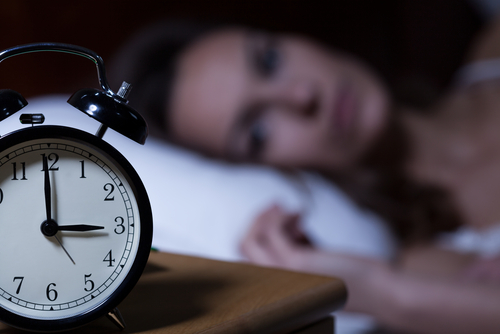Blood Sugar and Sleep Problems: How Blood Sugar Levels Impact Sleep
Alaska Sleep Clinic is dedicated to raising awareness for diabetic complications and how they correlate with sleep disorders and overall tiredness.
SLEEP PROBLEMS AND SNORING MAY PREDICT DIABETES
Studies have shown that individuals who consistently have a bad night’s sleep are more likely to develop conditions linked to diabetes and heart disease.
Loud snoring sleepers (many of whom may have sleep apnea), compared to quiet sleepers, double (2x) their risks of developing certain types of metabolic syndrome(s); including diabetes, obesity, and high blood pressure. This likelihood also increased dramatically to 80% in those who found it difficult to fall asleep and to 70% for those who woke up feeling not as refreshed.
Blood Sugar and Sleep Problems
Sleep can affect your blood sugar levels, and your blood glucose control can also affect your sleep. It’s a vicious cycle.
As the amount of sleep decreases, blood sugar increases, escalating the issue. Lack of sleep has been shown to increase blood sugar levels and the risk of diabetic issues. Higher blood sugar means less long-lasting fat metabolism in the night and even less sleep.
Researchers at Boston University School of Medicine found that people who slept less than 6 hours a night had more blood sugar complications compared to those who received 8 hours of sleep.
HIGH BLOOD SUGAR – HYPERGLYCEMIA
Sleepless and restless nights hurt more than your mood and energy; it is a form of chronic stress on the body. When there is added stress on your body this results in having higher blood sugar levels. When researchers restricted people with type-1 diabetes to just 4 hours of sleep, their sensitivity to insulin was reduced by 20% compared to that after a full night of sleep.
When your blood sugar is really high, your kidneys will try to get rid of it by removing it from the body via urination. This most likely causes you to get out of bed and go to the bathroom all night, resulting in inconsistent sleep patterns. It can also wake you up by feelings of thirstiness.
High blood sugar levels also make it less comfortable for you to sleep by feelings of warmness, irritability and unsettledness.
THE DAWN PHENOMENON
The dawn phenomenon occurs when the body releases growth and other hormones around 3 a.m. or 4 a.m. to prepare the body for arousal. Making you wake up to a high blood sugar reading in the morning, even if your number was good when you went to bed the night before.
These hormones make the body less sensitive to insulin, the hormone that lowers blood sugar. In people with diabetes, these changes can lead to a morning blood sugar spike.
LOW BLOOD SUGAR – HYPOGLYCEMIA
On the opposite end of the spectrum, if your blood glucose is too low, hypoglycemia, you may also wake up during the night. Every cell in your body needs sugar to work properly. It’s your body’s main source of energy. When your sugar levels fall too low it can cause a variety of problems within your central nervous system which can include:
- Hunger
- Weakness
- Dizziness
- Nervousness
- Anxiousness
- Irritability
- Chills
- Sweating
- Tingling or numbness of mouth
- Blurred Vision
- Headache
- Confusion
- Nightmares
- Sleepwalking
- Restlessness
The next time you wake up during the night with these symptoms, check your blood glucose. When there is a drop in the blood glucose level, it causes the release of hormones that regulate glucose levels, such as adrenaline, glucagon, cortisol, and growth hormone. These compounds stimulate the brain. They are a natural signal that it is time to eat.
Good bedtime snacks to keep blood sugar levels steady throughout the night are oatmeal and other whole grain cereals, whole grain breads and muffins, and other complex carbohydrates. These foods will not only help maintain blood sugar levels, they actually can help promote sleep by increasing the level of serotonin in the brain.
Severe low blood sugar is sometimes called insulin shock. Untreated, it can be very dangerous, resulting in seizures, loss of consciousness, or death.
TIPS FOR A BETTER NIGHT SLEEP
Getting into a consistent sleep routine will improve your overall health and you may start to see subtle improvements in blood sugar as well. The following tips sleep tips may help to promote better sleep:
- Check and monitor your blood glucose to keep it under control
- Establish a regular bedtime routine
- Ensure your bed is large and comfortable enough
- Ensure your room is cool and well ventilated
- Ensure your room is dark and free from noise
- Incorporating a period of exercise into each day
To stay informed on more information regarding diabetes and sleep issues read an essay on diabetes and subscribe to our blog. And remember, you can always contact us here at The Alaska Sleep Clinic for any questions regarding how diabetes can affect your sleep at 855-AKSLEEP (855-257-5337).



